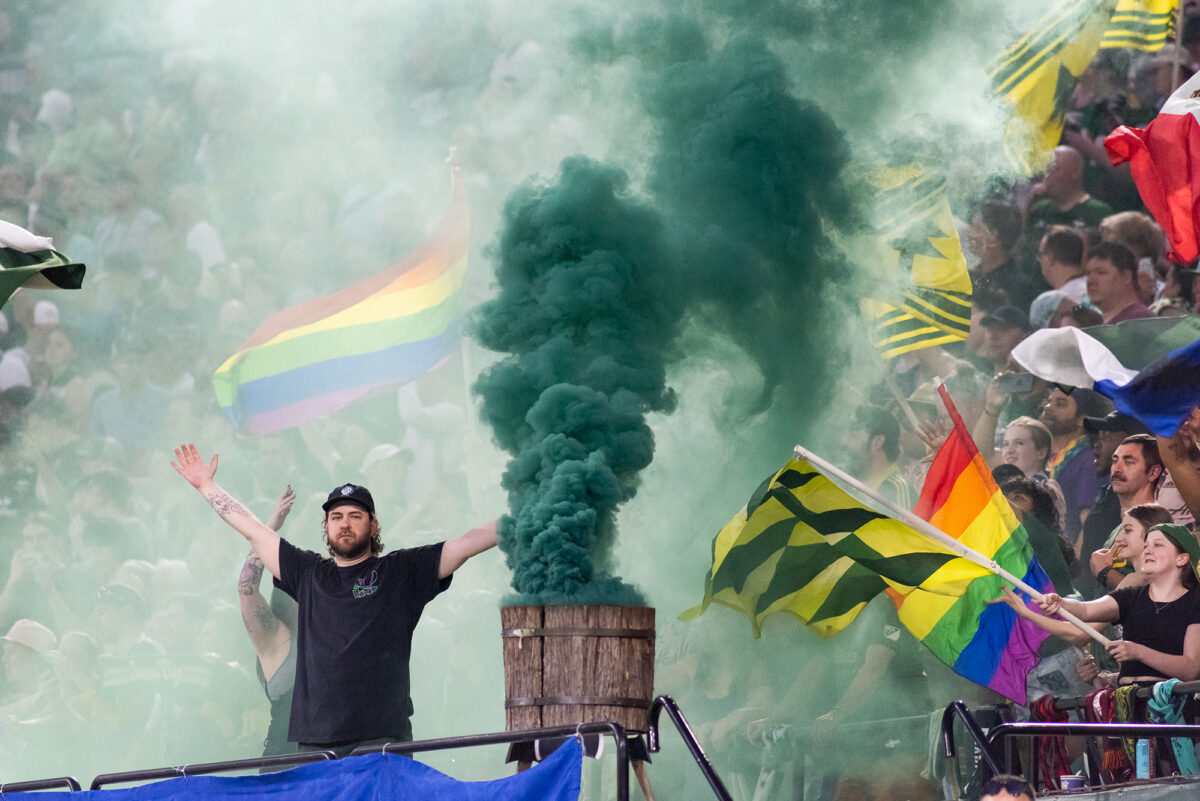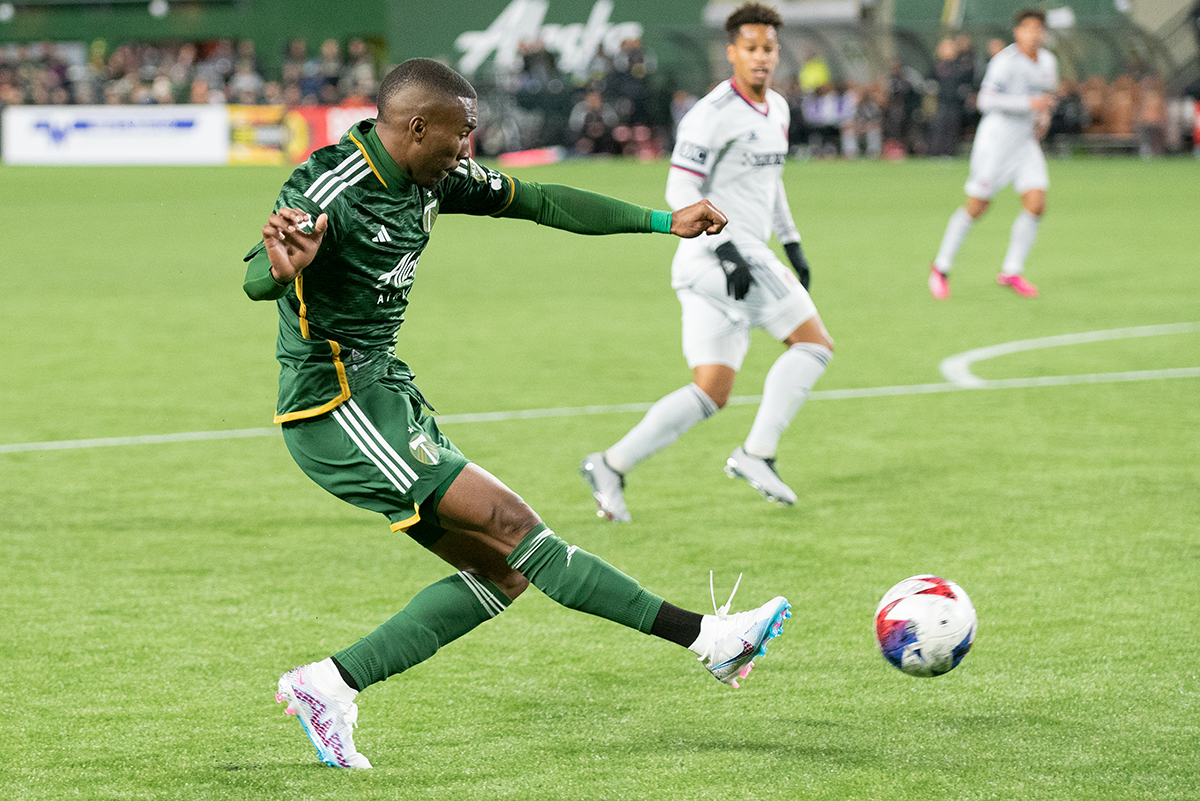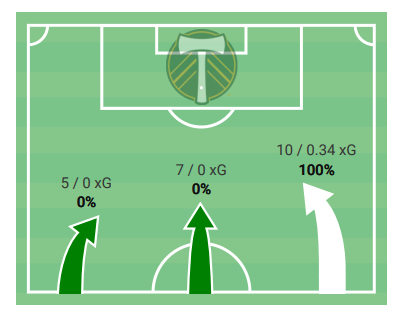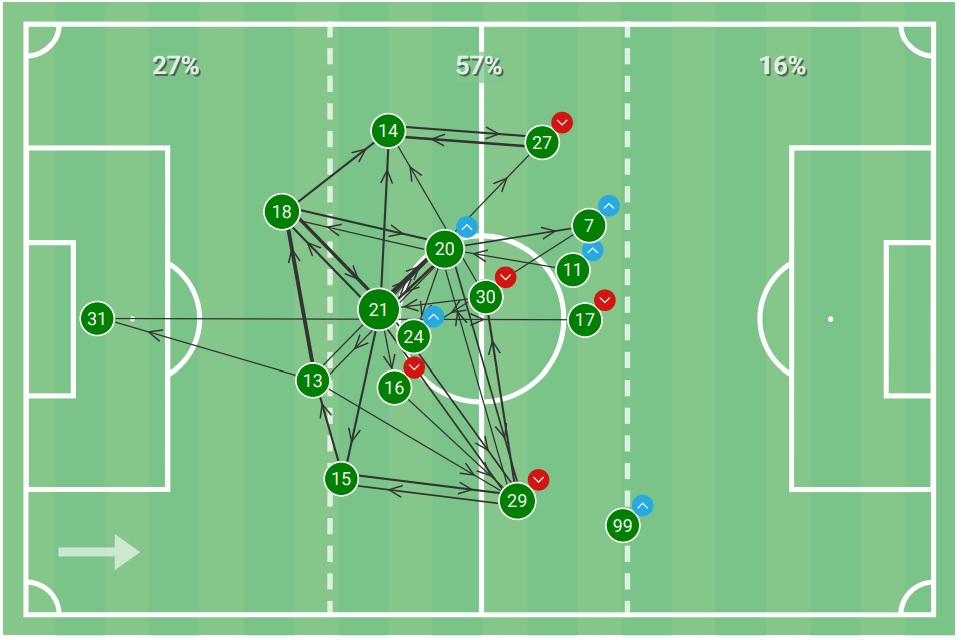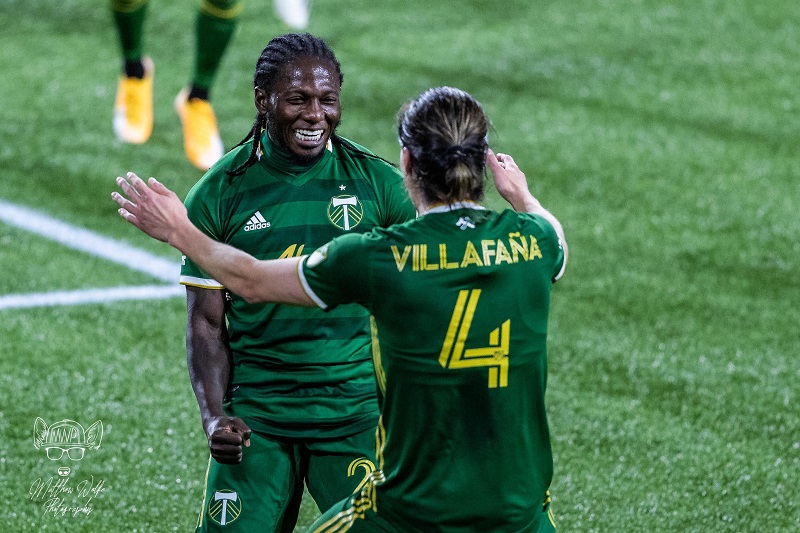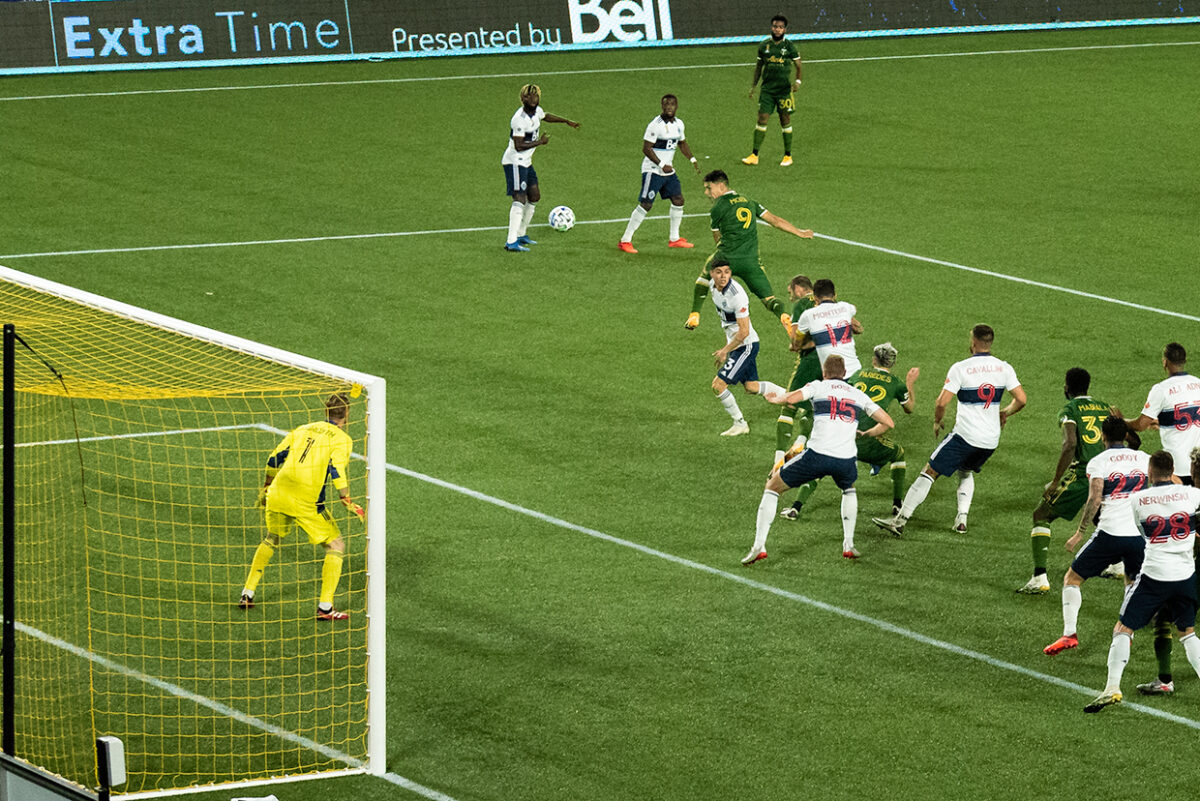After losing to the Whitecaps 0-1 in Vancouver in April, the Portland Timbers had revenge on their mind when they hosted one of their Cascadia rivals Saturday.
In the previous matchup, the Timbers were outmatched, overwhelmed, and shorthanded. But this time, Portland got their sweet revenge, with a 3-1 win in their most complete performance of the year.
Timbers head coach Gio Savarese was very pleased with his team’s performance.
“Very important win for many, many reasons,” said Savarese. “Three points. Cascadia Cup. Home game. Then we performed very well.”
Still, he said, “I think we can still progress, we can still get better. There’s areas that we have to continue to work, but I think the first 20 minutes and the entire second half, I thought we were very, very good.”
In the second minute, Franck Boli broke out of his scoring drought to put Portland on the board first.
The Timbers continued to create chances after the opening goal, with combination play between Juan David Mosquera, Santi Moreno, and Evander putting another one away in the 18th minute.
You weren't dreaming, this actually happened 🤯
Good morning, #RCTID pic.twitter.com/f3ahl57wrm
— Portland Timbers (@TimbersFC) May 14, 2023
This was some of their finest work all year.
This team has been clicking offensively for weeks, and it showed off big time. Portland outshot and had more shots on target than Vancouver, putting up 13 and seven to the Whitecaps’ seven and four, respectively.
Unfortunately in the 24th minute, Zac McGraw went for a clearance that turned into an own goal.
In the 54th minute, Evander put on a insane move to freeze his defender and then ripped a shot for Portland’s third goal for the final score.
This was his best game as a Timber, and he has let the entire MLS know, too.
The Evander Show
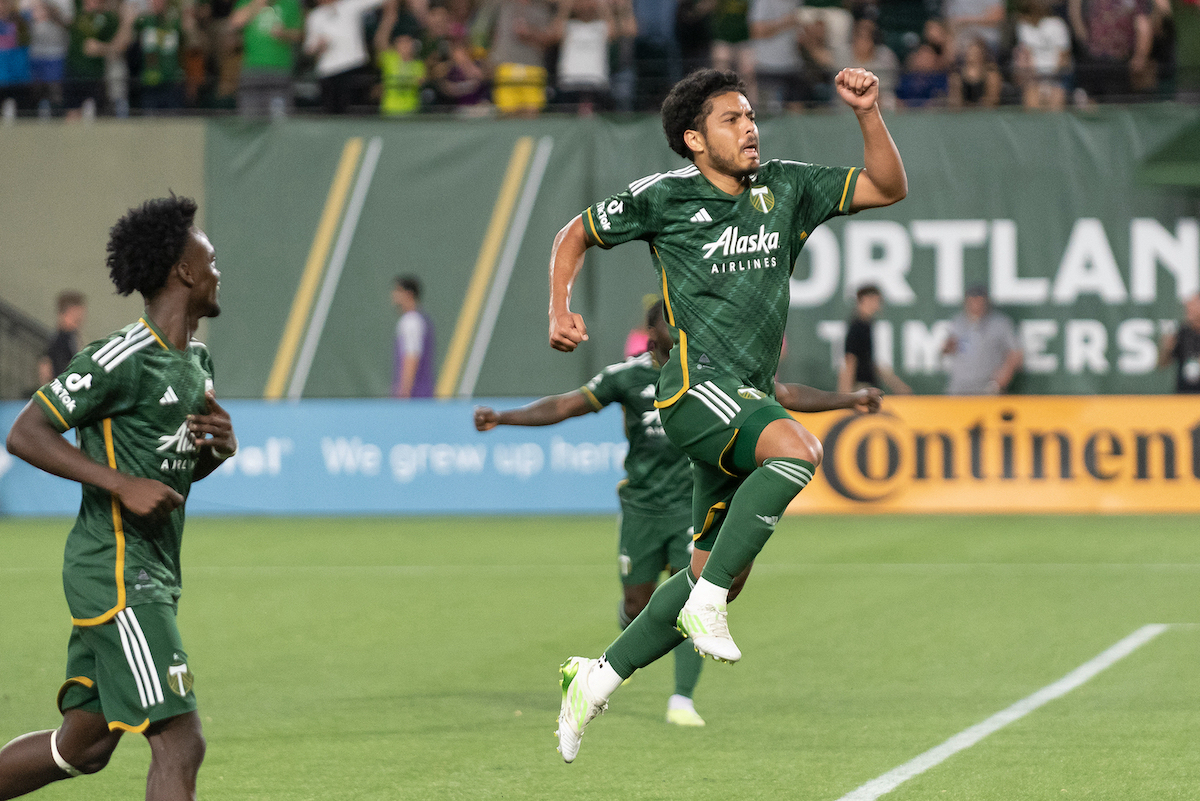
After early struggles with form and injury, Evander has played his best ball the past few weeks. He is playing with tons of confidence, his decision making is so much quicker, and his passing has been very crisp. This is the exact player general manager Ned Grabavoy and Savarese wanted to sign.
Evander is one of the most in form players in MLS right now, and the Timbers are steadily climbing the table thanks to his contributions.
The Portland Timbers are playing their best football of the season, which happens to coincide with his best run of play.
Is that a coincidence? Absolutely not.
After scoring twice tonight, Evander became the first player in @TimbersFC history to produce a multi-goal game following a multi-assist game. pic.twitter.com/yZpqL1j1Ob
— MLS Communications (@MLS_PR) May 14, 2023
“I was going for the hat trick,” said Evander. “Of course, not doing crazy things, but I wanted one more opportunity for a goal. I knew that nobody [on the Timbers] has scored a hat trick in an MLS competition, and I wanted to be the first, but I’ll have to wait till the next opportunity.
Still, he was pleased with his team’s performance. “I think this shows us how good we are” he said, “how good we are when we play together and as a team… When we play together, when we are compact and play soccer and enjoy the game, things become much easier. The win today gives us more confidence for the rest of the season.”
All You Gotta Do is BOLIeve
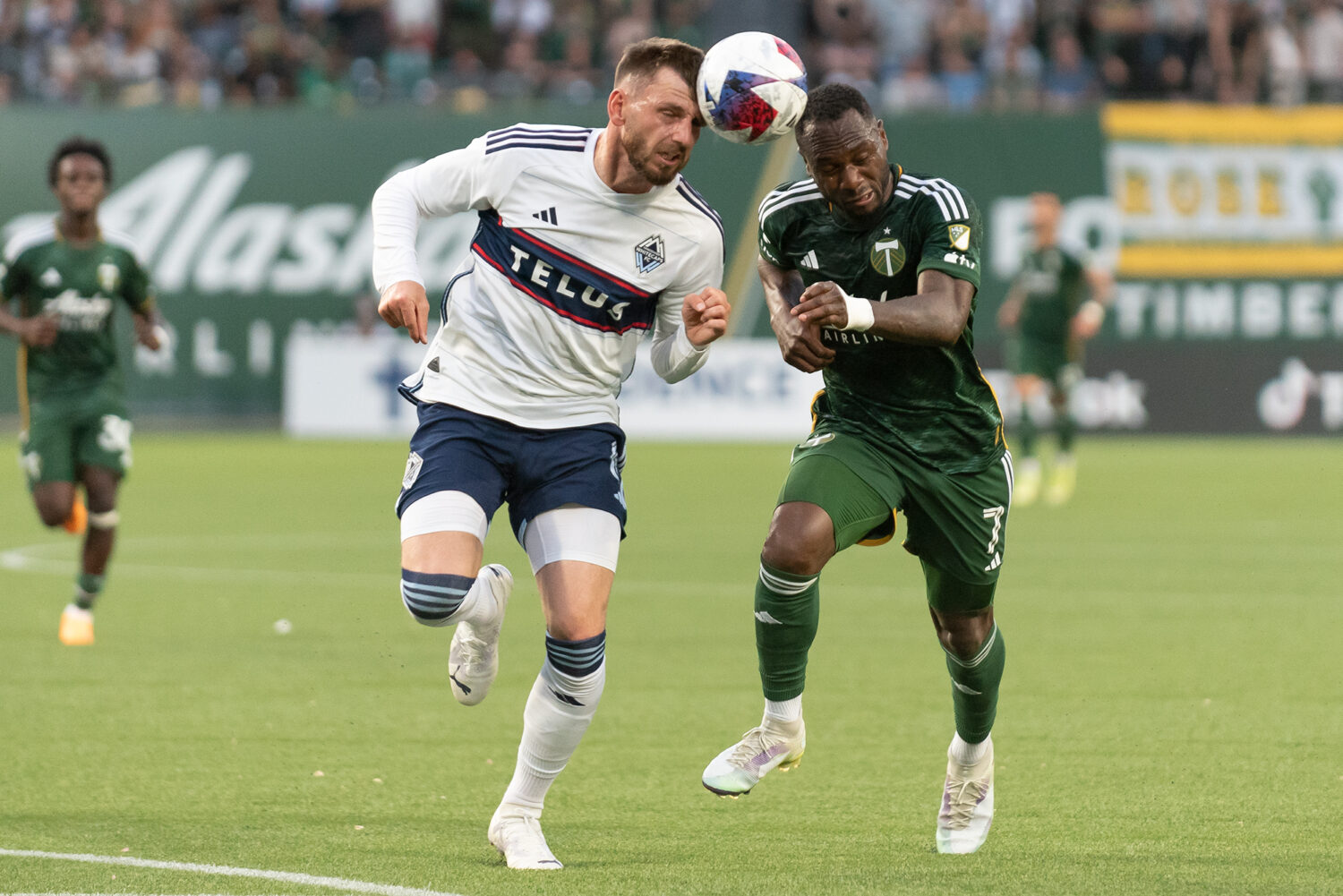
Boli scored his first goal for Portland in his Timbers debut. Since then, he has been hungry for his second.
His work rate and comfort level has been steadily climbing in the past couple weeks.
“I am a striker. I create goals. Last game I wanted to score so bad, I missed some goals and got angry,” said Boli. “But you’ve got to try again.
“I’m very happy to score today and also that the team won,” he said. “That’s even more important than my goal. As a striker, you want to score every time and I’m happy about that.”
Boli has continued to be get more comfortable with the team and league.
“He’s getting to understand the league,” said Savarese. “He’s getting to feel more chemistry, and he’s getting fitter as well.
“You saw his movements today,” Savarese said. “Now he knows how to move around the defenders because they’re physical here in MLS. He needs to understand how to find good areas in order to make sure to be in good places to get the ball. He created some very good moments, attacking-wise.”
Fun stats
- xG: Portland 1.15, Vancouver 0.59
- Evander led the team in shots, shots on goal, and goals.
- Santiago Moreno paced the team in chances created, successful dribbles, and completed passes in the final third.
- Juan David Mosquera had the most touches, crosses attempted, completed passes on the team.
- Dario Zuparic was stout in defense with 10 recoveries and seven aerial duels won.
- Diego Chará made his 350th MLS appearance.

